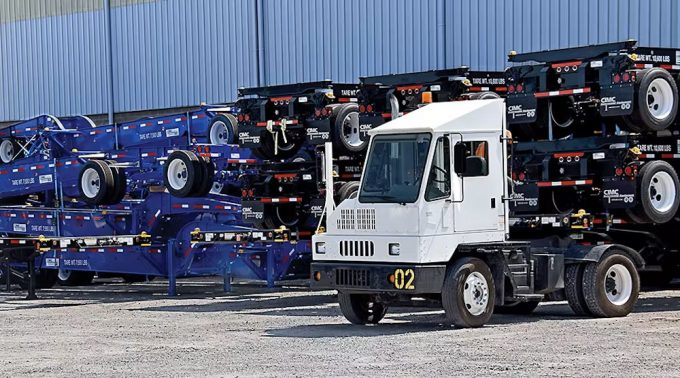West coast ports brace for new import surge – 'but they can cope this time'
US west coast ports are bracing for a surge in imports, driven by the convergence ...

The latest Port Rail Ramp Freight Index, produced by ITS Logistics, shows flows through US ports have returned to normal, but chassis availability at inland rail ramps is low, giving cause for concern that a rise in traffic will revive the problem.
Moreover, the stalemate in ...

Comment on this article